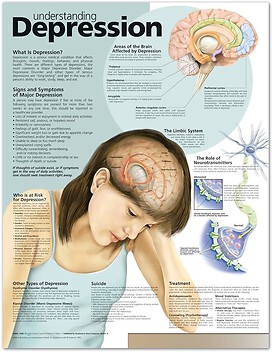Understanding Depression
Depression is a state or a mental health condition which affects huge number of people worldwide. It is important to differentiate depression from transient sadness; depression is a continuous state of low mood and disinclination towards activities that can radically impair daily functioning in our daily routine.
There are various symptoms and types of depression:
depressive disorder (MDD), persistent depressive disorder (dysthymia), and bipolar disorder. Each type presents unique challenges in our daily routine or in our daily life. MDD is characterized by severe depressive episodes, while dysthymia involves chronic, less severe depressive symptoms. Bipolar disorder alternates between depressive and manic episodes.There are even few Common symptoms include like continuous sadness, loss of interest in activities, changes in appetite and sleep patterns, fatigue, difficulty concentrating, and feeling of guilt. In severe cases, depression can lead to suicidal thoughts too. depression is multifaceted, involving genetic, biological, environmental, and psychological factors. Genetic proneness plays a important role, with a higher prospect of depression in individuals with a family history of this kind of disorder. Biologically,there are imbalances in neurotransmitters such as serotonin and dopamine which are involved. Environmental factors , such as trauma, loss of close ones,continuous stress, can trigger depressive episodes. Psychological factor includes things like negative thoughts,and low self-esteem, which ultimately contribute to the development of depression.Diagnosis often involves evaluation by a mental health professional, including a detailed patient history and a proper standardized Diagnosis Tools like the Beck Depression Inventory or the Hamilton Depression Rating Scale that may be used to understand the level of conditions or symptoms.
Treatment options are varies from person to person which often involves a combination of different kinds of point of view.there are Antidepressant medications, such as selective serotonin reuptake inhibitors (SSRIs), which can help to lower thesymptoms by correcting neurotransmitter imbalances. Psychotherapy, including cognitive-behavioral therapy (CBT) and interpersonal therapy (IPT), tells the underlying psychological issues and teaches how to deal with it. This is an important strategie indeed. Lifestyle changes, such as regular exercise, a healthy diet, and sufficient sleep, are also important,crucial and beneficial. In some cases, alternative treatments like acupuncture or mindfulness meditation provide relief too. depression is a complex condition, but with proper understanding, diagnosis, and treatment, people can lead a good life. Continuous research and open discussions are beneficial and important in fighting thev stigma and improving outcomes for those who are affected by depression.

